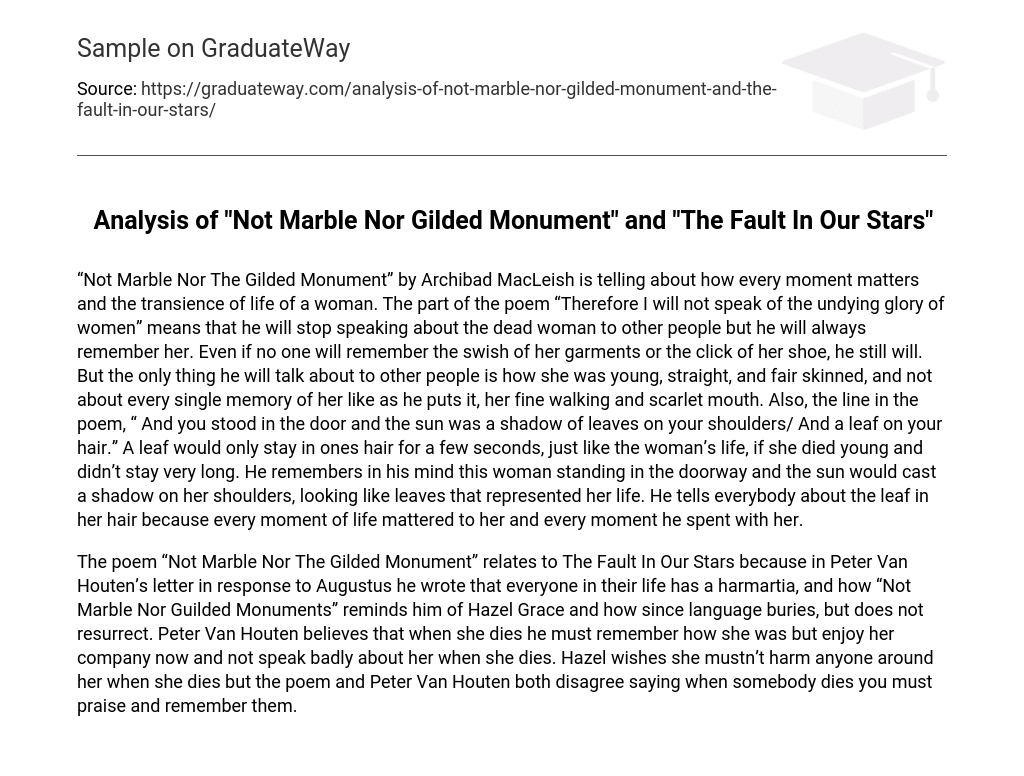The poem “Not Marble Nor The Gilded Monument” by Archibald MacLeish emphasizes the significance of each moment and the fleeting nature of a woman’s life. The phrase “Therefore I will not speak of the undying glory of women” suggests that the speaker will refrain from discussing the deceased woman to others, but will always remember her. Although others may forget the sound of her garments and the sound of her shoe, the speaker will not. However, when speaking to others, he will only mention her youth, straightness, and fair complexion, rather than recounting every memory such as her graceful walking and scarlet mouth. Moreover, the line “And you stood in the door and the sun was a shadow of leaves on your shoulders/ And a leaf on your hair” symbolizes the brevity of life. Just as a leaf remains in one’s hair for but a few seconds, the woman’s life was short-lived if she died young. The image of the woman standing in the doorway with sunlight casting leaf-shaped shadows on her shoulders represents her life. He shares this detail with others because it demonstrates that every moment had meaning to her and each moment spent with her was cherished.
The poem “Not Marble Nor The Gilded Monument” is connected to The Fault In Our Stars through Peter Van Houten’s letter in response to Augustus. In the letter, he explains that everyone in life has a flaw, or harmartia, and how the poem reminds him of Hazel Grace. He believes that language has the power to bury but not resurrect, and therefore, when Hazel dies, he must remember and appreciate her as she was while enjoying her company in the present. He advises against speaking ill of her after her passing. However, Hazel’s wish is to ensure she doesn’t harm those around her when she dies. The poem and Peter Van Houten both oppose this viewpoint by emphasizing the importance of praising and remembering someone after their death.





